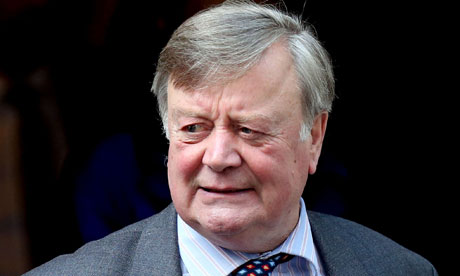After recent embarrassments, the government wants to ensure no intelligence information emerges in civil court hearings again

The government has tried to assuage opponents by keeping the relatively liberal Ken Clarke in charge of the bill. Photograph: Steve Parsons/PA
The justice and security bill is the direct result of evidence that emerged in court supporting allegations that MI5 and MI6 knew about the torture or inhuman and degrading treatment meted out by the CIA to terror suspects, including British citizens and residents, notably Binyam Mohamed.
The high court, later backed by senior judges in the court of appeal, ruled that information the CIA had passed to MI5 and MI6 should be disclosed. Washington was furious. The British government, and in particular David Miliband, the foreign secretary at the time, was deeply embarrassed.
There was a danger of further incriminating evidence emerging in court as UK citizens and residents who were held at Guantánamo Bay demanded compensation. To avoid disclosing what MI5 and MI6 may have known about the secret transfer of the detainees to the US military prison on Cuba and about their treatment, the government offered them expensive out-of-court settlements.
Under pressure from the security and intelligence agencies – and the US – the coalition government decided to introduce a statute designed to prevent any intelligence information from being disclosed in civil court hearings ever again.
The government argues that the bill would allow more intelligence information to be heard in court than hitherto, even though it would be heard in secret. A judge would decide whether the information should be kept secret. The bill's critics say that the way it is drafted means it would be extremely difficult for a judge to challenge any minister's claim that information should be kept secret on grounds of national security. The fact that a hearing would be held in secret could itself be kept secret.
Critics say the bill represents a creeping move towards more and more secret courts, based on the model of the special immigration appeals commission, where any evidence can be withheld from a defendant and his or her lawyers. Evidence of British collusion in the abuse and rendition of terror suspects to places where they risked being tortured – including evidence of MI6's role in the rendition in 2004 of two Libyan dissidents into the hands of Muammar Gaddafi's secret police in Tripoli – might never have seen the light of day had the bill been in place.
The government has tried to assuage opponents by keeping the role of steering the bill through parliament in the hands of the relatively liberal former justice secretary Ken Clarke, rather than his successor, Chris Grayling. Liberal Democrat ministers have sought credit for excluding inquests from the bill, an element of the original draft that had provoked strong opposition from armed forces families and the British Legion.
But senior Liberal Democrats have not all been persuaded and will express their concern about the bill at their conference in Brighton this month. A motion says the bill's proposals for "closed material procedures", as they are called, form no part either of the Liberal Democrat or Conservative manifestos in 2010, or the coalition agreement.
No comments:
Post a Comment